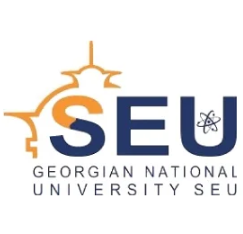- 12plusinternationalstudy@gmail.com
- India : +91 63604 70451
- UK: +44 7403 333472

Tuition
$5,500
Graduate Entry
No
Entrance Exam
No
Living Cost
$350/Month
Check if you meet the requirements
Established in 2001 by Ilia Chavchavadze, Georgian National University has consistently aspired to attain recognition both domestically and internationally as a premier institution of higher education.
This steadfast commitment has propelled the university to the forefront of academia, particularly in the field of medicine, earning it the distinction of being one of the finest universities in Georgia.
Today, the university attracts not only local students but also a diverse array of international learners from across the globe. This achievement is attributed to Georgian National University’s provision of a conducive educational environment and state-of-the-art infrastructure tailored specifically for medical studies in Georgia.
Georgian National University stands ready to accompany students on their journey in the field of medicine, offering unparalleled facilities and esteemed faculty to ensure the delivery of the highest quality education, thereby enabling students to realize their dreams of becoming doctors.
At the heart of its mission is the endeavor to establish an internationally compliant university environment by integrating robust theoretical, practical, and research components into its educational framework.


The great news is there’s no entrance exam here. Admission is quick and simple and consists of a short interview where your motivation and performance will be evaluated.
To be eligible for entry into GNU, you must have an English proficiency certificate. Also, you should have obtained at least 50% grades in Physics, Chemistry and Biology in your high-school diploma.
Understanding the intricate rules that medical universities have for international students can be a confusing and exhausting task. Georgian National University SEU, for instance, has a comprehensive list of application requirements such as document translations, legalisation procedures, and notarisation specifics. Not sticking to these requirements can lead to application denial. However, with 12plusinternationalstudy, we make this complex process straightforward by taking care of your application from start to finish. We have a good relationship with Georgian National University SEU, and our knowledgeable expert advisors understand the ins and outs of their application process. We know what this esteemed medical university seeks in a perfect candidate and can ensure that you submit a top-tier application that will secure your acceptance. By opting for 12plusinternationalstudy, you avoid the tedious and confusing aspects of applying to an international medical school, leaving you free to focus on what’s important – preparing for exams and setting sail on your promising medical journey.
Applying through 12plusinternationalstudy gives you an advantage over other applicants with guaranteed entry. We promise you a smooth application process, support throughout your education, and help with practising as a doctor in your home country or abroad.
The Georgian National University in Tbilisi, Georgia, is accredited by the National Centre for Educational Quality Enhancement, the Medical Council of India, the World Health Organisation, the Georgian Ministry of Education and Healthcare, World Directory of Medical Schools.
Affordable prices at Tbilisi allow the students to choose to live on their own. Two seater room apartment in the city centre can cost only $350 monthly. In total, per month, you will need around $450–$700 for rent, utilities and living expenses.
The academic year usually starts at the beginning of October and ends around mid-January. You will have your midterm exams between 12 – 24 November. The final examination period is throughout February.
The second semester starts in mid-March and lasts until the end of June. Midterm exams are taken starting late April until mid-May. The final exam period is in the first 2 weeks of July.

Do you meet the requirements?